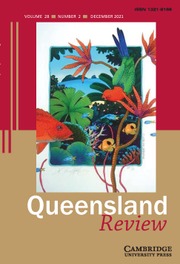Article contents
‘Never-ending Story’: Public Accountability and Public Administration Reform in Queensland Since 1989
Published online by Cambridge University Press: 23 August 2012
Extract
Soon after Johannes Bjelke-Petersen became Premier of Queensland in 1968, companies in which he held shares were given six-year leases to explore for oil on the Great Barrier Reef. The following year, ministers in his government accepted parcels of Comalco shares. So did senior bureaucrats and the Premier's wife. Criticism at the time was muted because Labor politicians and some journalists had also taken shares (Whitton 1989, p. 19). Bjelke-Petersen was adamant that he had done nothing wrong — a feeling that presumably was shared by other beneficiaries of Comalco's largesse (Wear 2002, p. 93). Because it is inconceivable that a saga of such blatant conflict of interest would be played out in today's Queensland, there is a temptation to tell a simple ‘before and after Fitzgerald’ story of public accountability and administrative reform. Considered analysis suggests, however, that the reality is much more complex. There was progress, but there was also backsliding. Some reforms — such as those to the electoral system — were significant and enduring. Others — such as whistleblower and FOI legislation — were fairly quickly watered down. There was a lack of long-term interest in public administration, parliament retained its usual place on the margins of Queensland's political institutions and executive power remained relatively unconstrained. Cases of corruption continued to emerge.
- Type
- Articles
- Information
- Queensland Review , Volume 18 , Issue 2: SPECIAL EDITION: Labor in Queensland, 1989–2011 , 2011 , pp. 175 - 189
- Copyright
- Copyright © Cambridge University Press 2011
- 2
- Cited by




